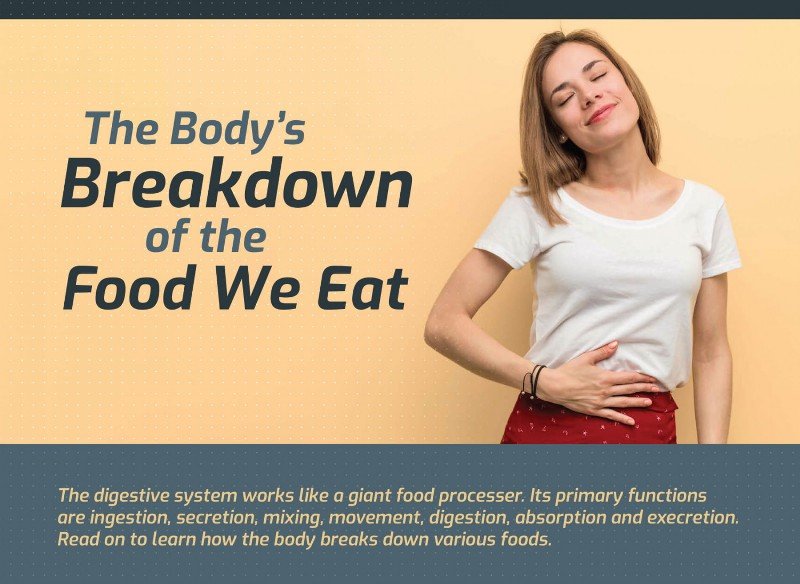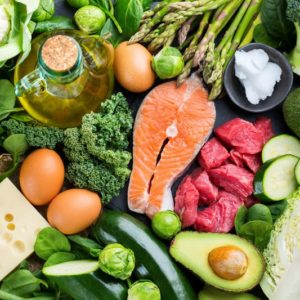Digestion works like a giant food processor, using chemical and mechanical means to break down food into nutrients and energy. It can take up to 40 hours for food to move through the colon. If this process fails, you can become deficient in key nutrients that are responsible for healthy cell function. Continue reading to learn how certain food types are broken down and how you can improve digestion.
Carbohydrates — one of the four major macronutrients — provide a significant amount of fuel to the body. They include sugars and fiber that are mostly found in grains, fruit, vegetables, milk products, nuts, seeds and legumes. Carbohydrate digestion begins in the mouth with the help of salivary amylase. This enzyme begins the process of breaking down the polysaccharides in the carbohydrate.
Further breakdown occurs when the food mixture, known as chyme, enters the duodenum of the small intestine. This causes the pancreas to release amylase to break down the polysaccharides into disaccharides. Lactase, sucrase and maltase are also released to help break down the disaccharides into monosaccharides, which are single sugars that are then absorbed into the small intestine. Absorbed carbohydrate molecules are used immediately for energy or stored in various forms in the liver, muscles or adipose tissue for future use. Carbs that were not digested or absorbed reach the colon where they are partly broken apart by intestinal bacteria.
Fat supports several of the body’s functions and supplies it with energy. Digestion of certain fats begins in the mouth, where short-chain lipids break down diglycerides. Once the food mixture reaches the small intestine, the pancreas releases lipase and the liver excretes bile, which enables the breakdown of fats into fatty acids.
Your lifestyle and choice of foods can affect the way your body digests what you eat. To keep the digestive system running smoothly, a high-fiber diet is the best choice. Foods that are rich in fiber include whole grains, fruits, vegetables and legumes. Dietary fiber helps you feel fuller, and increases the weight and size of the stool while softening it. This helps to keep bowel movements regular and prevents constipation. Be sure to add soluble and insoluble fiber into your diet for the best results.
Probiotics may also help to improve digestive health. These live micro-organisms can help restore the natural balance of gut bacteria. Probiotics can be found in yogurt, kefir, kombucha and other fermented foods, as well as dietary supplements. Proper digestion and gut health are essential for overall wellness. To learn more about how certain food types are digested in the body, see the accompanying infographic, courtesy of Quadro Liquids.





